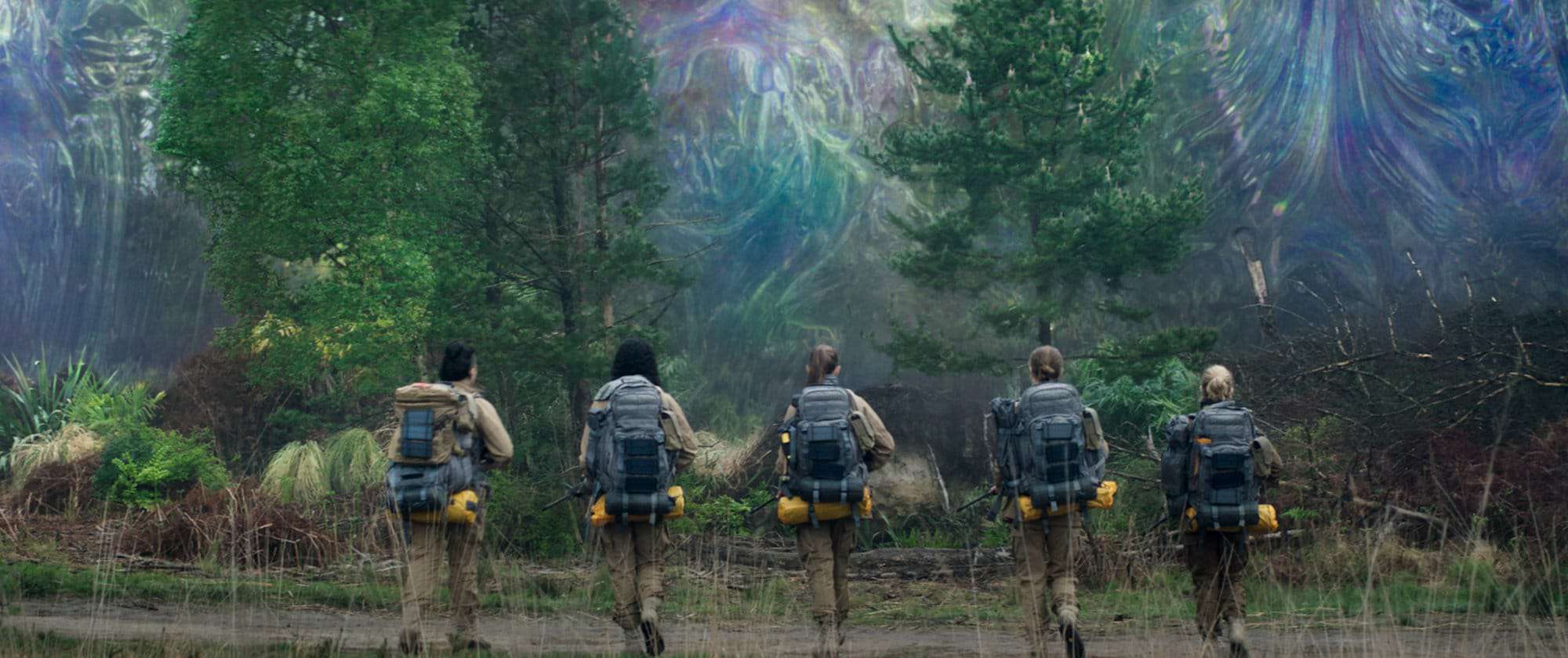
Movies to Watch After You See Mute:
Out of the Past (1947)
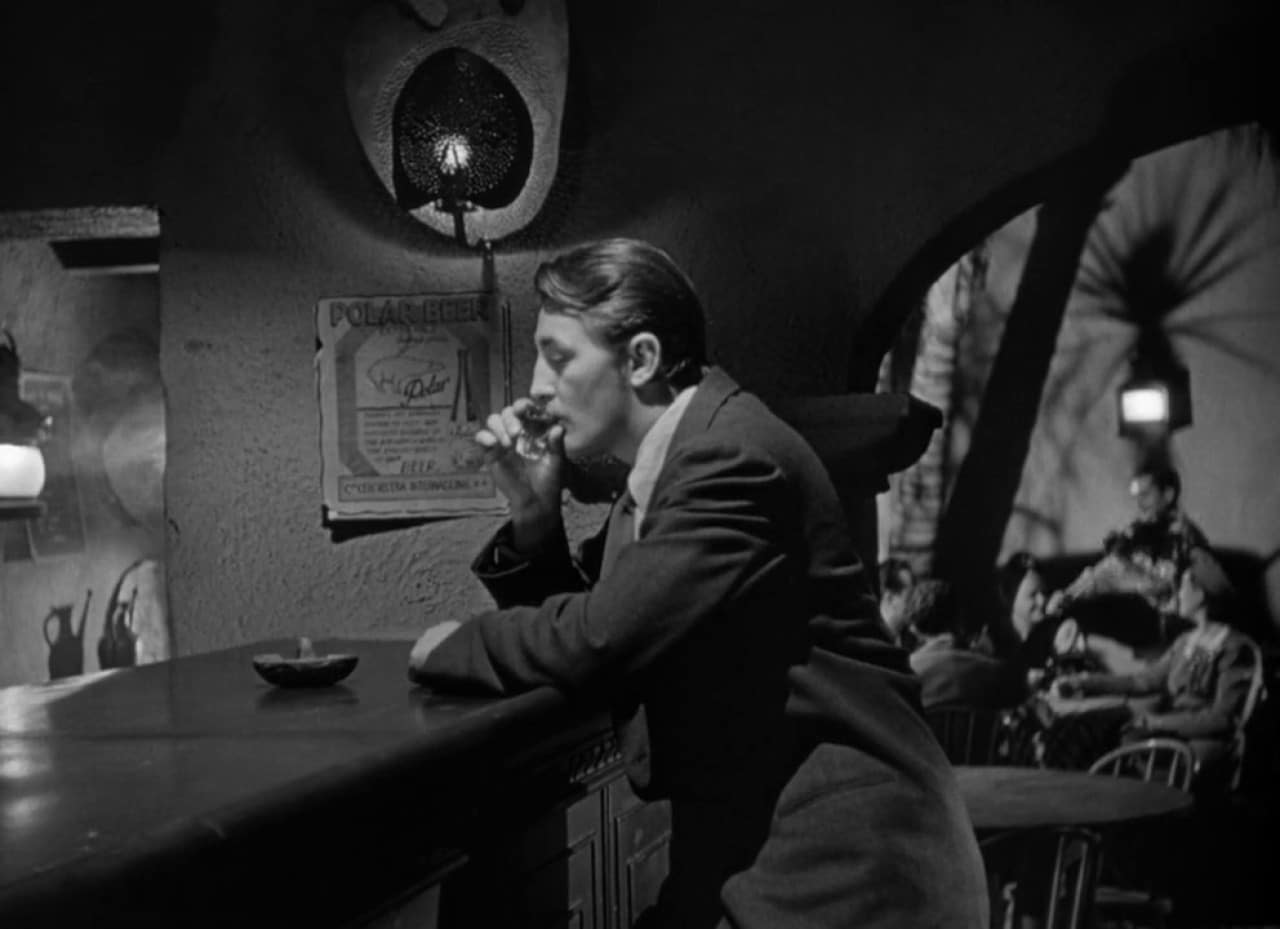
If there’s one obvious genre influence for Mute, it’s film noir, with specific focus on other future-noir hybrids like Blade Runner. For the real thing, there’s a lot to choose from, and Jones has personally acknowledged certain homages, such as the opening shot’s reference to the opening shot of Sunset Boulevard, and inspirations including The Third Man. But I wanted to recommend Jacques Tourneur’s Out of the Past, which stars Robert Mitchum as a former detective whose past catches up to him, specifically because of its prominent deaf-mute character. That’s sort of an excuse, somewhat tied to the mute protagonist of Jones’s movie, but this adaptation of “Build My Gallows High” is of the best of the genre and an essential example of a convoluted investigative story being engaging and thrilling every step of the way.
M*A*S*H (1970)

Jones is also influenced by a lot of 1970s movies, including Robert Altman’s M.A.S.H., which more people have probably seen in its TV series remake form. The film, which itself is based on a novel, is about army medics at a mobile surgical hospital during the Korean War. Two of the main characters, the sardonic duo “Hawkeye” Pierce and Trapper John McIntyre, as portrayed respectively by Donald Sutherland and Elliott Gould, are the inspirations for Mute‘s doctor duo, Duck (Justin Theroux) and Cactus (Paul Rudd), right down to the latter’s handlebar mustache. As Jones told us, “there’s obviously a fairly extensive homage” there.
He went further in many other interviews, including this quote from his chat with The Tracking Board:
“I think Cactus and Duck are both very much kind of built off the backs of Trapper John and Hawkeye Pierce from Robert Altman’s ‘M.A.S.H.,’ which is one of my favorite comedies. And I always thought what’s interesting about those characters in that film is that as smart and engaging and fun to watch as they are, they’re also kind of mean in ‘M.A.S.H.,’ and I always thought, ‘Well, what if they were beyond mean? What if they were actual villains?’ And that’s really what Cactus and Duck are – my riff on those two guys and just how dark they could go if they wanted to be.”
World on a Wire (1973)
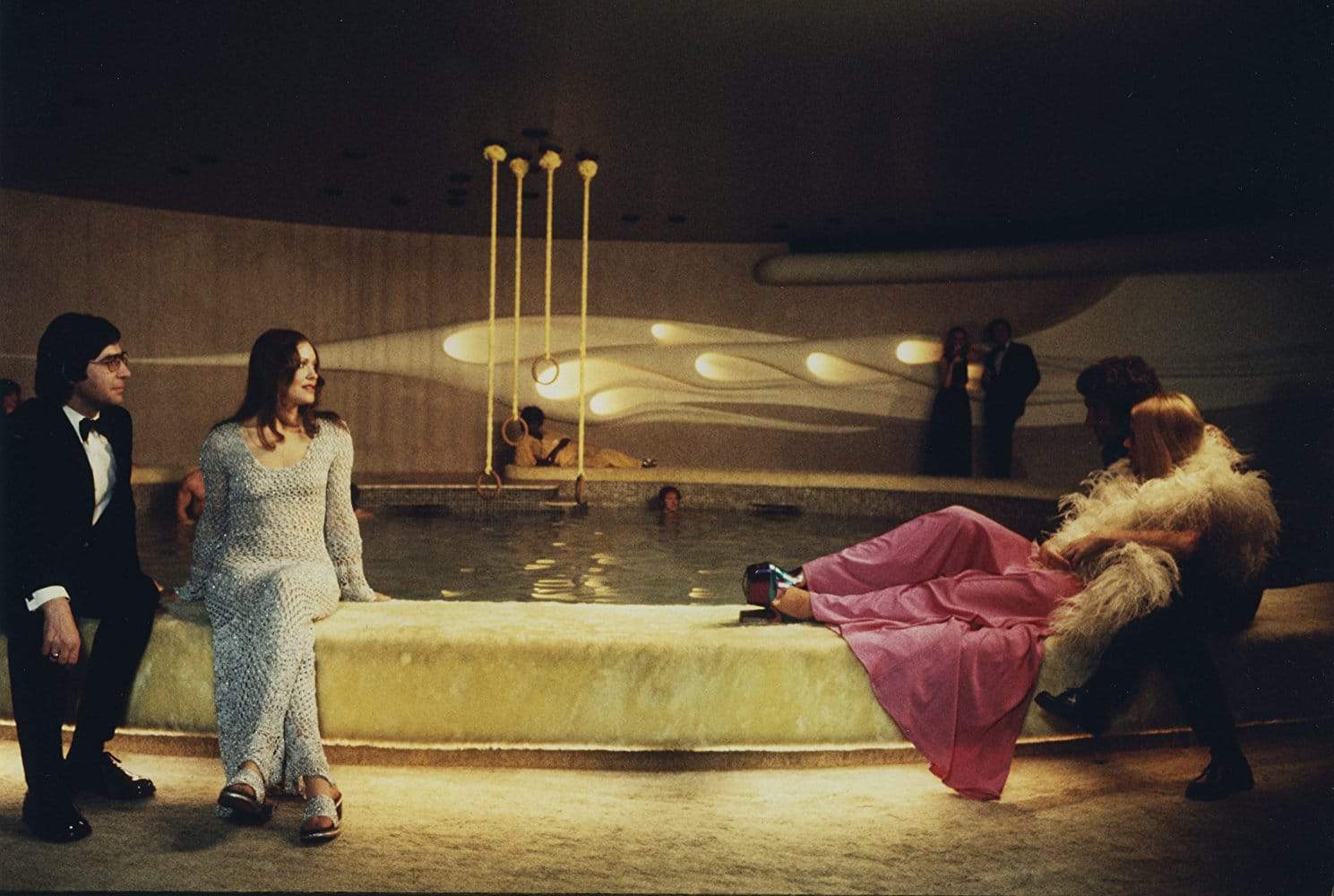
Before Blade Runner made future-noir popular, foreign films such as Jean-Luc Godard’s Alphaville and Rainer Werner Fassbinder’s World on a Wire were mixing sci-fi and hardboiled detective stories in far less accessible ways. The latter (originally broadcast as a two-part miniseries) is the one of the two I’m highlighting because it’s German, like the setting of Mute, and it’s from the ’70s. Based on the novel “Simulacron-3,” which also was later adapted as The Thirteenth Floor, the film follows a scientist, who more resembles a noir detective character, as he uncovers a corporate conspiracy.
Hardcore (1979)
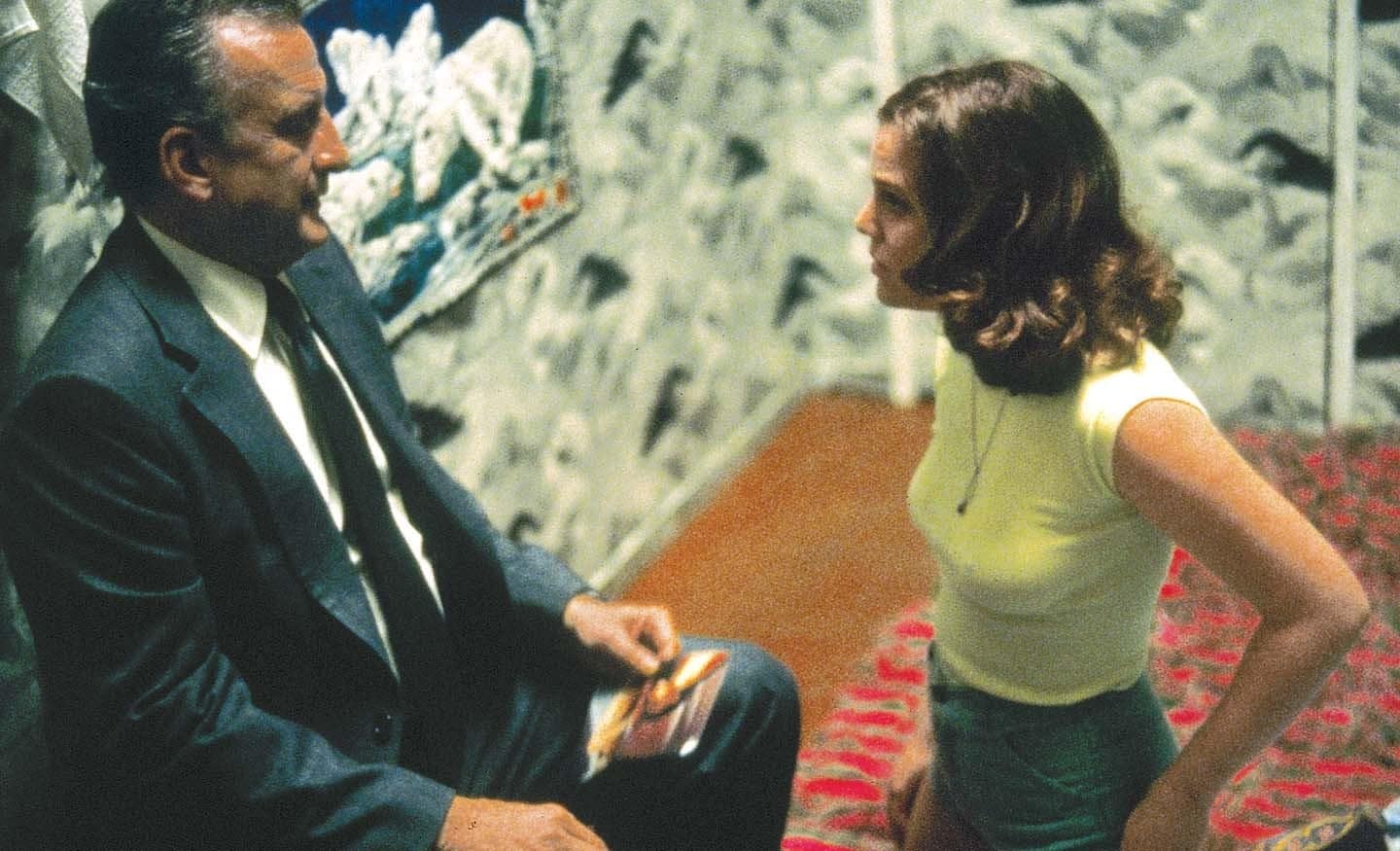
One of the ’70s thrillers that Jones told us is an influence on Mute, Hardcore is Paul Schrader’s own take on The Searchers after he wrote the screenplay for Martin Scorsese’s similar Taxi Driver. The film stars George C. Scott as the father of a teenage girl who goes missing and Peter Boyle as the private detective he hires to investigate her whereabouts. As in Mute, the search for the missing young woman involves a seedy underworld, in this case the porn industry. The fact that the missing girl is the main character’s daughter somewhat goes with Rudd’s character’s worries about his daughter, especially given what he sees at the club and in his best friend, but there was almost a chance of Hardcore involving the Scott character’s wife instead, which would make it more like that of the relationship of hero and his missing girlfriend in Mute.
Christiane F. (1981)
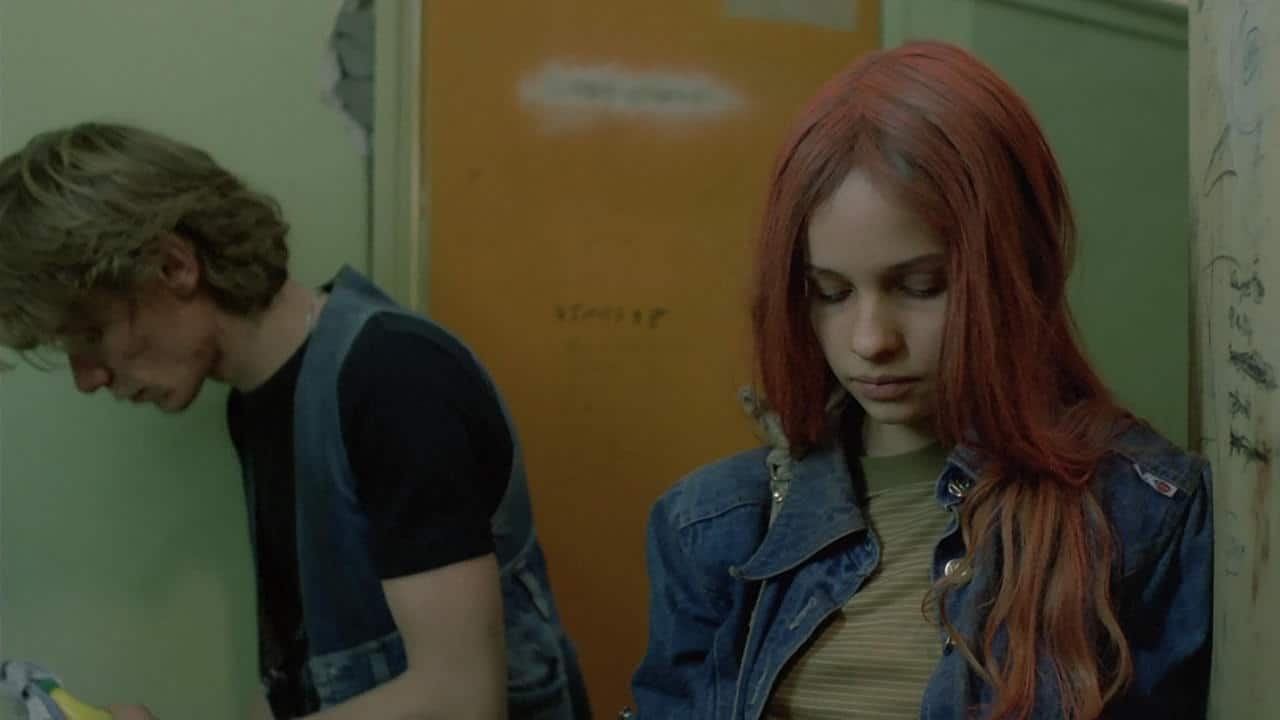
Another more personal influence on Mute was Jones’s father, David Bowie, to whom he co-dedicated the film. Specifically, Jones thought about Bowie’s Berlin phase and their living there when he was young. That’s why the film is set in the German capital. There are a number of movies to look at related to Bowie in Berlin, including obscure documentaries and concert films, and maybe eventually a planned biopic about him and Iggy Pop. There’s also the 1978 German movie Just a Gigolo, which Bowie starred in during that era. It’s set in Germany during the Weimar Republic era, and it’s not good. Instead, I recommend Uli Edel’s Christiane F., which features Bowie as himself and a soundtrack of his music. The main focus, though, depicts the real-life title character’s drug use and prostitution and street life of her early teen years. Not only does it fit Jones’s homage to his father but the seedy world it presents also goes with that of the future Berlin of Mute.
Witness (1985)
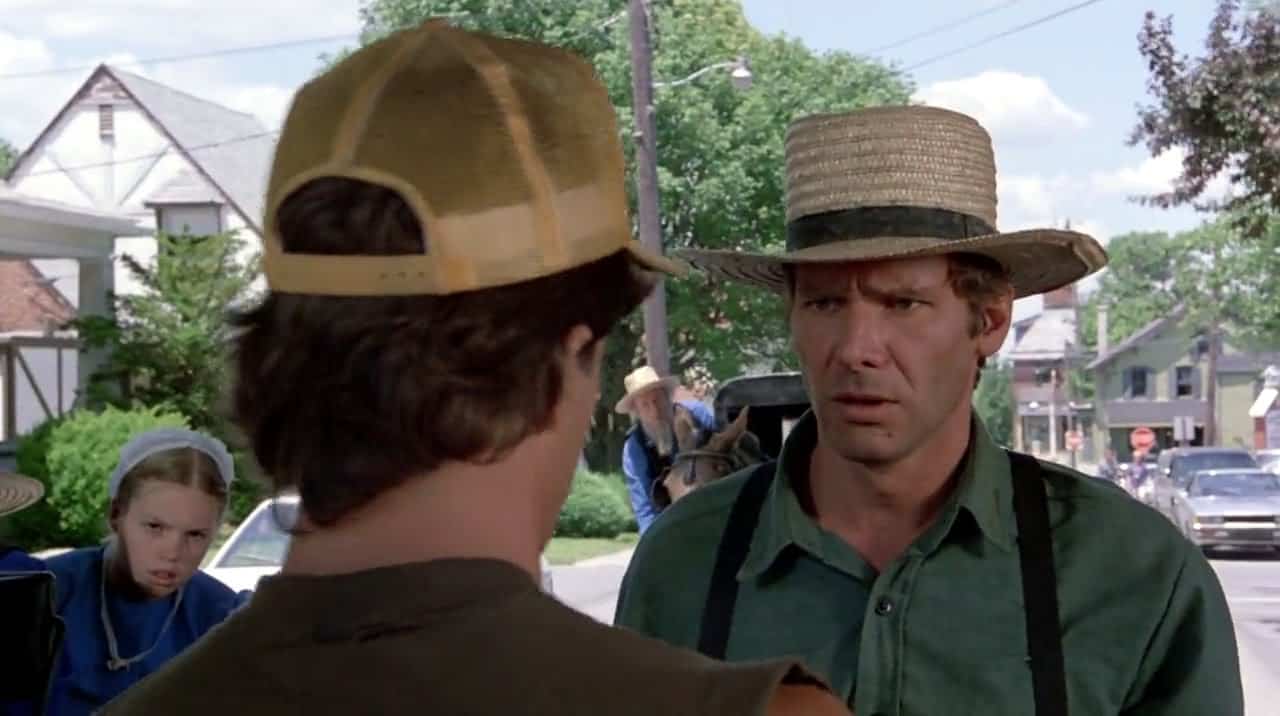
One of the more interesting aspects of Mute is the Amish background of Alexander Skarsgård’s lead character, Leo. He comes from that strict religious community but now lives in the big city, where he becomes something of a detective in his search for his girlfriend. In Peter Weir’s Witness, we get sort of the reverse as Harrison Ford (who also stars in Blade Runner, of course) plays a big city detective who lives for a while in Amish country after escorting a young murder witness back to his farm.
Regarding the Amish background of the character, I’d also like to recommend an honorable mention in Lucy Walker’s 2002 documentary Devil’s Playground, which follows Amish teens during the rite of passage known as rumspringa when they get to experience life outside the community and wind up partying a whole lot.
Honorable Mentions for Mute (most of them cited by Jones): Blade Runner, Point Blank, Casablanca, The Third Man, Sunset Boulevard, Devil’s Playground, Alphaville, A Clockwork Orange, Cabaret
Related Topics: Alex Garland, Annihilation, Duncan Jones, Movie DNA, Mute
